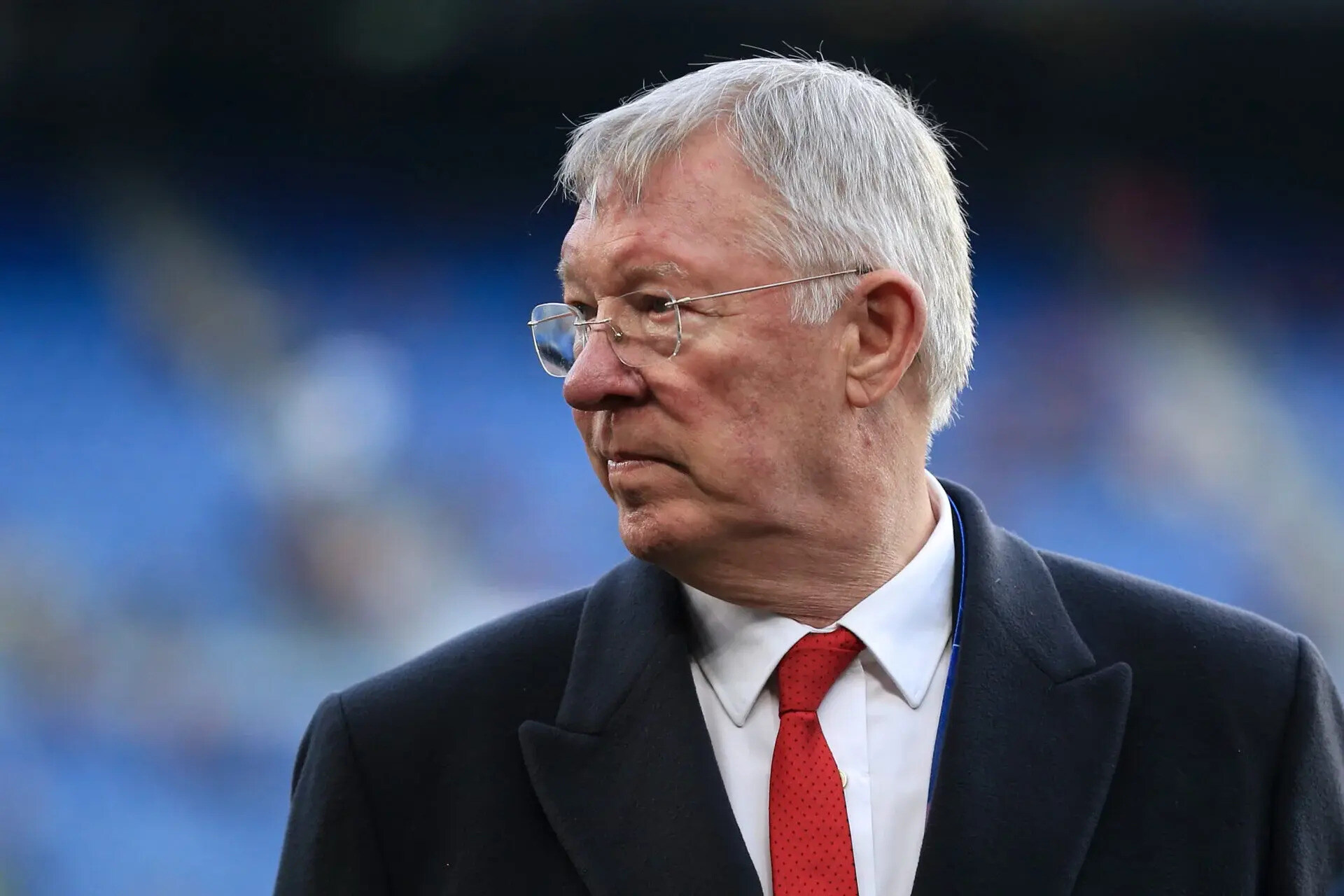
Who is Sir Alex Ferguson? Sir Alex Ferguson, born Alexander Chapman Ferguson on December 31, 1941, in Glasgow, Scotland, is a football legend. Known for his incredible managerial career, Ferguson's journey began in the shipyards of Glasgow and led him to become one of the most successful football managers ever. He started managing East Stirlingshire in 1974, then moved to St. Mirren and Aberdeen, where he achieved remarkable success. However, his most iconic tenure was with Manchester United, where he won 38 domestic and international titles over 26 years. Knighted in 1999, Ferguson's influence extends beyond football, impacting culture, commerce, and global visibility.
Key Takeaways:
- Sir Alex Ferguson's journey from Glasgow to football greatness showcases the impact of early experiences on a legendary career, inspiring young athletes to pursue their passion and work hard for their dreams.
- Ferguson's leadership style, adaptability, and impact beyond football set a powerful example for future generations, emphasizing the importance of continuous improvement, community engagement, and academic recognition.
Early Life and Career Beginnings
Sir Alex Ferguson's journey to football greatness began in the bustling city of Glasgow, Scotland. His early life and initial steps into the world of football set the stage for his legendary career.
-
Early Life and Education: Born on December 31, 1941, in Govan, Glasgow, Ferguson attended Govan High School. He worked in a Glasgow shipyard while playing amateur football for Queen’s Park.
-
Professional Football Career: Ferguson's professional career kicked off in 1964 with Dunfermline Athletic. He later played for Rangers and other clubs before hanging up his boots in 1974.
Transition to Management
Ferguson's transition from player to manager was swift and impactful. His early managerial roles laid the foundation for his future success.
-
Managerial Debut: Ferguson's first managerial role was with East Stirlingshire in 1974. He soon moved to St. Mirren, leading them to a league championship in 1976–77.
-
Aberdeen FC: In 1978, Ferguson took the reins at Aberdeen FC. Under his leadership, Aberdeen won three Scottish Premier Division titles, four Scottish Cups, and a European Cup Winners’ Cup.
Manchester United Era
Ferguson's tenure at Manchester United is the stuff of legends. His time at the club transformed it into a global powerhouse.
-
Manchester United: Ferguson joined Manchester United in November 1986. The team initially struggled, but he eventually led them to unprecedented success.
-
Domestic and International Titles: Over 26 years at Manchester United, Ferguson won 38 domestic and international titles, including 13 Premier League championships, five FA Cups, and two UEFA Champions League titles.
-
Premier League Manager of the Year: Ferguson was named Premier League Manager of the Year 11 times, showcasing his consistent excellence.
-
Champions League Wins: His two Champions League victories in 1999 and 2008 were career highlights. The 1999 win completed the first-ever "treble" in English football history.
-
FA Cup Victories: Ferguson led Manchester United to five FA Cup victories in 1990, 1994, 1996, 1999, and 2004.
Honors and Recognitions
Ferguson's contributions to football have been recognized with numerous honors and awards.
-
Knighthood: In 1999, Ferguson was knighted by Queen Elizabeth II for his services to football.
-
Commander of the British Empire (CBE): He was made a Commander of the British Empire (CBE) in 1995.
-
Legacy at Manchester United: The Old Trafford North Stand was renamed the Sir Alex Ferguson Stand in his honor in 2011.
-
Inaugural Inductee of the English Football Hall of Fame: In 2002, Ferguson was inducted into the English Football Hall of Fame.
-
FA Coaching Diploma: In 2003, Ferguson received the FA Coaching Diploma, awarded to coaches with at least ten years of managerial experience.
-
Vice-President of the National Football Museum: Ferguson serves as the Vice-President of the National Football Museum in Manchester.
-
Executive Committee Member of the League Managers Association: He is also a member of the Executive Committee of the League Managers Association.
Leadership and Management Style
Ferguson's leadership and management style were key to his success. His approach to developing young players and adapting tactics set him apart.
-
Development of Young Players: Ferguson excelled at developing young talent, nurturing players like Ryan Giggs, Paul Scholes, and David Beckham.
-
Leadership Approach: His leadership was marked by high standards, hard work, and risk-taking. Loyalty and giving young players opportunities were crucial.
-
Adaptability: Ferguson continuously updated his tactics and strategies to stay ahead of the competition.
-
Player Management: He knew when to rebuild his team and when to hold onto key players, guided by performance and contributions.
-
Motivation Techniques: Ferguson used various motivational techniques, believing in the power of praise with words like "Well done."
-
Risk-Taking: He often made bold decisions during matches, willing to take risks to secure victories.
-
Observation Skills: Ferguson emphasized the importance of observation in management, seeing things others might miss.
-
Continuous Improvement: He believed in never stopping adapting and changing strategies to maintain dominance.
Impact Beyond Football
Ferguson's influence extends beyond the football pitch. His contributions to culture, commerce, and global visibility are significant.
-
Legacy Beyond Football: Ferguson's impact on culture, commerce, and global visibility was recognized with an honorary degree from the University of Manchester in 2011.
-
Freedom of the City: He holds a Freedom of the City in Aberdeen, acknowledging his contributions to the city and its football club.
-
Honorary Degree from the University of Manchester: The University of Manchester honored Ferguson with an honorary degree in 2011.
Key Moments and Innovations
Ferguson's career is dotted with key moments and innovations that defined his legacy.
-
Cristiano Ronaldo’s Impact: Ferguson's high expectations and motivational techniques helped Cristiano Ronaldo excel at Manchester United.
-
The "Kids Win the Double" Season: The 1995–96 season saw Ferguson's young team, including Paul Scholes and David Beckham, win both the Premier League and FA Cup.
-
Roy Keane’s Captaincy: Appointing Roy Keane as captain brought new intensity and leadership to the team.
-
Tactical Innovations: Ferguson introduced the "catenaccio" system, emphasizing defensive solidity and quick counter-attacks.
-
Player Transfers: He strategically acquired players like Eric Cantona, Peter Schmeichel, and Roy Keane, who significantly contributed to the team's success.
Club Culture and Community Engagement
Ferguson fostered a strong club culture and engaged with the community, making Manchester United more than just a football club.
-
Club Culture: Under Ferguson, Manchester United developed a strong sense of unity and teamwork.
-
Community Engagement: He supported various charitable initiatives, helping the club become a symbol of community pride.
-
Media Presence: Ferguson used his media presence to influence narratives and keep opponents on their toes.
Academic Recognition and Post-Retirement Contributions
Ferguson's leadership style has been studied extensively, and his contributions continue even after retirement.
-
Harvard Business Review Study: In 2013, Harvard Business School professor Anita Elberse conducted a study on Ferguson’s management style, titled "Ferguson’s Formula."
-
Leadership Lessons: The study identified key leadership lessons, including setting high standards and never ceding control.
-
Case Study on Ferguson’s Leadership: The Harvard Business Review published a detailed case study on Ferguson’s leadership approach.
-
Legacy in Academia: Ferguson’s methods have been analyzed and applied in various business and sports management contexts.
-
Post-Retirement Contributions: After retiring in 2013, Ferguson continued to contribute to Manchester United as a club ambassador and in a front-office role.
Ferguson's Lasting Impact
Sir Alex Ferguson's legacy in football is nothing short of legendary. From his humble beginnings in Glasgow to becoming one of the most successful managers in history, his journey is filled with remarkable achievements. Leading Manchester United to 38 domestic and international titles, including 13 Premier League championships and two UEFA Champions League titles, Ferguson's influence on the sport is undeniable. His ability to develop young talent, adapt tactics, and motivate players set him apart. Beyond football, his contributions to culture and community have left a lasting mark. Even after retiring, Ferguson continues to inspire through his leadership lessons and ongoing involvement with Manchester United. His story is a testament to dedication, innovation, and the relentless pursuit of excellence. Sir Alex Ferguson's name will forever be synonymous with football greatness.
Frequently Asked Questions
Was this page helpful?
Our commitment to delivering trustworthy and engaging content is at the heart of what we do. Each fact on our site is contributed by real users like you, bringing a wealth of diverse insights and information. To ensure the highest standards of accuracy and reliability, our dedicated editors meticulously review each submission. This process guarantees that the facts we share are not only fascinating but also credible. Trust in our commitment to quality and authenticity as you explore and learn with us.


